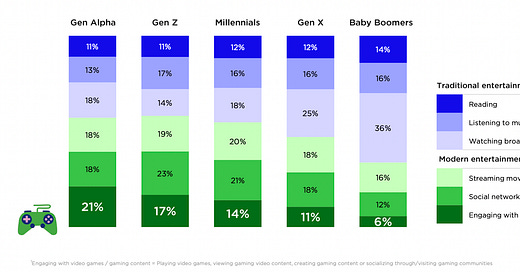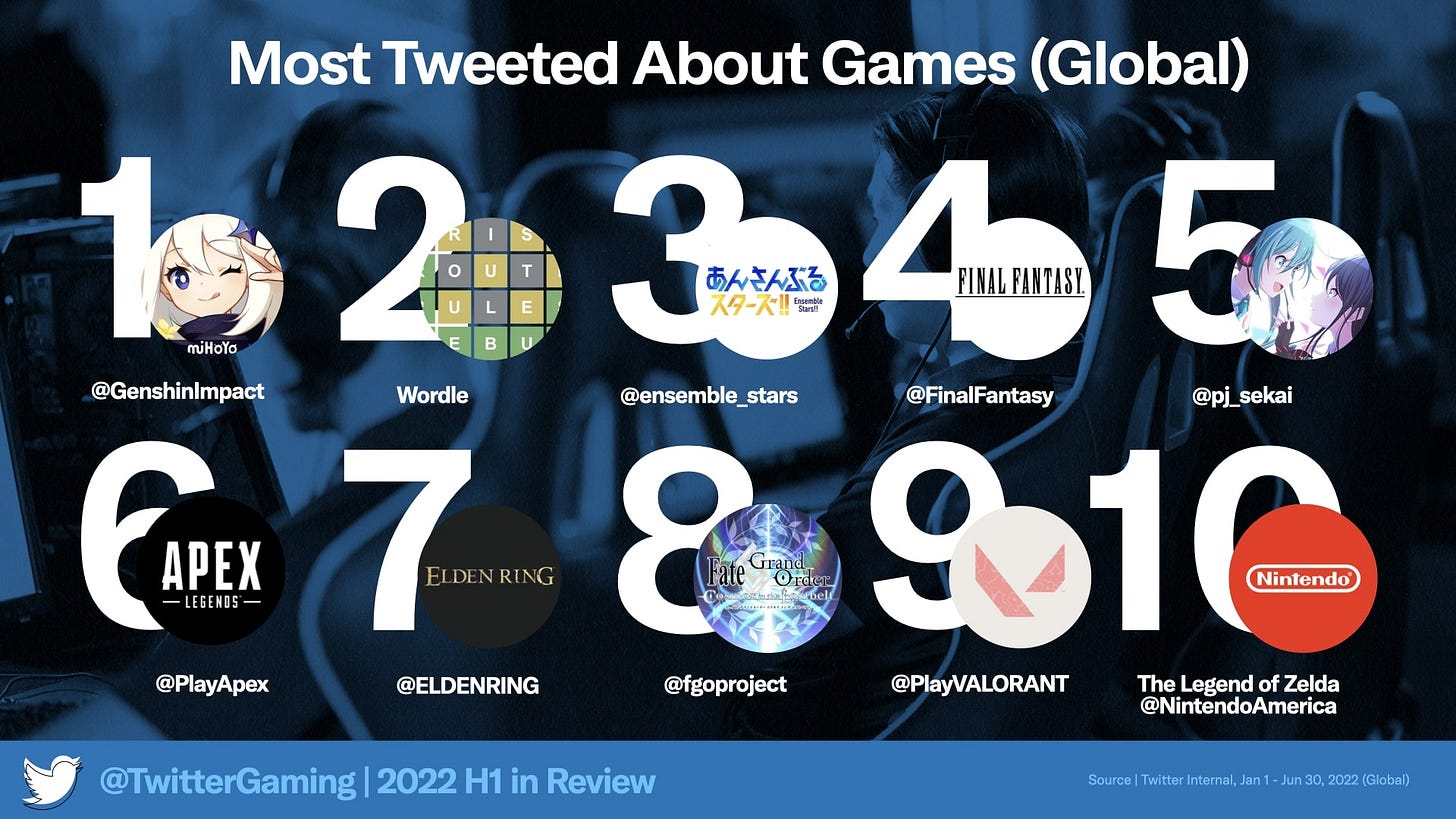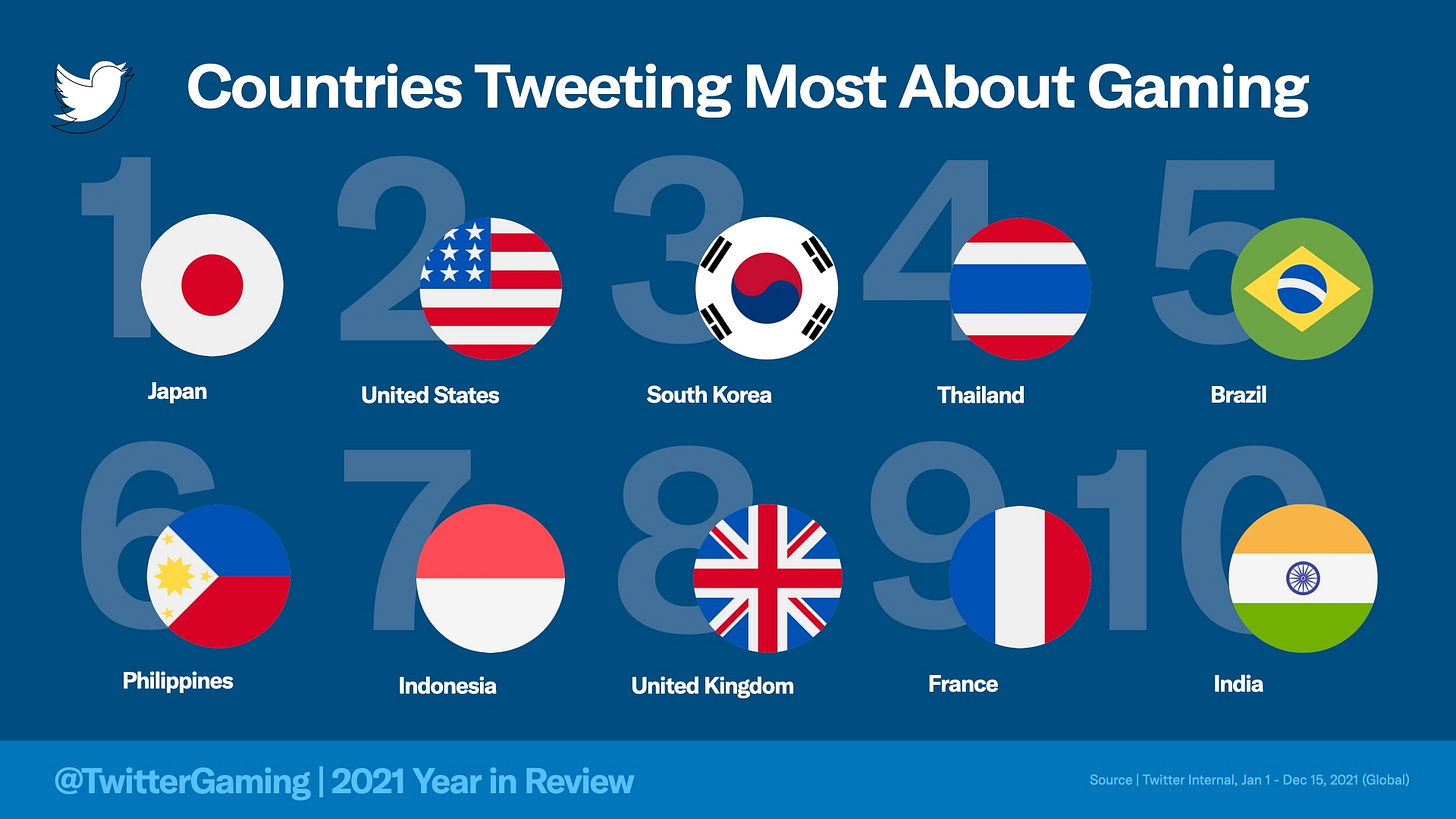Gaming is taking on New Meaning, Mobile Games earn $41.2bn in H1 2022 & First Trip to Yuga Labs' Otherside metaverse
THE DATA SAYS IT ALL
Consumers are Engaging with Games in a New Way
With every new generation, gaming becomes a bigger and more important part of daily life – 94% of Generation Alpha (born 2010 or later) users worldwide engage with games and game content.
Consumer spending via games will generate more than $200 billion in 2023 alone. Game-related engagement is at an all-time high, and this engagement translates to more spending, especially as younger generations age up and gain their own sources of income.
Socialising in games is catalysing the metaverse. In fact, according to Newzoo’s Metaverse Sentiment Study, nearly 75% of players are no longer gaming just to play, they enter virtual worlds to connect with others.
What it means to “game” continues to expand far beyond traditional playing. Those who engage with games to play are now in the minority. Already 28% of the online population is already engaging with games across playing, viewing, and other forms of engagement like online communities, podcasts, in person events and more.
Source: Newzoo Data Insights: ‘How Consumers are Engaging with Games in 2022’
Twitter Reports Insights into Gaming for H1 2022
According to Twitter Internal Data, in the first half of 2022 there were approximately 1.5 billion tweets about gaming which is a record half following up on a record year for gaming conversation in 2021.
WEEKLY NEWS ROUND
Mobile Gaming Triumphs in H1 2022
Globally, mobile games earned $41.2 billion during the first half of the year.
Although revenue was down 6.6% compared to H1 2021, downloads were up 0.4% as they reached 28.1 billion.
Chinese Tencent titles Honor of Kings and PUBG Mobile were the two highest revenue generating games in H1 2022, each having earned over $1 billion in consumer spending. Close behind on the list of high earnings were Genshin Impact with $986.2 million, Candy Crush Saga with $593.5 million and finally Roblox with $576.5 million.
Hefty investments made in Web3 Gaming
Last month, Immutable launched their $500 million developer and venture investments fund, a few days ago UnCaged Studios announced a $24 million raise to utilise and bring web3 technologies into games. It seems as though every few weeks fresh capital is flowing into the Web3 Gaming space.
As seen with most entertainment products, games don’t seem to follow the exact same cycles as the rest of the market, some claim gaming could even be ‘recession-proof’ although that’s yet to be seen.
Blockchain-enabled gaming also seems to run slightly independently from the rest of the cryptocurrency market. According to a DappRadar x BGA Games report, in May over 1.15 million daily unique active wallets interacted with blockchain games, down just 5% from the previous month and defying the bear market trend.
First Trip to the Otherside
On July 16th, Otherdeed land holders were invited to participate in a ‘First Trip’ to the Otherside, a beta development test that over 4000 users attended.
Yuga Labs also released the litepaper for Otherside (available here) – a document which serves as a starter guide and covers the “foundational principles of the platform, capabilities of its developer, and possibilities for community co-creation.” The majority of feedback from beta testers published on Twitter was highly positive, particularly reporting very little to lag times even when running in browser.

Improbable is the metaverse technology company developing Otherside, and invented the M2, which they describe on their blog as a “metaverse network and ecosystem powered by its Morpheus technology” which supports over 10,000 players able to interact with each other in dense virtual spaces. In short, M2 allows the creation of rich and large scale virtual worlds.
In a Twitter Spaces post-event, Rob Whitehead, CPO at Improbable explained how they are tackling interoperability: “One of the big promises of the metaverse is interoperability [..] the meme is being able to take your gun from Minecraft to Call of Duty and it making sense, but from a dev POV that's just not how video games are being built right now. There is no common meaning or ontology around how these objects can map together.”
Please refer to our thread below for more quotes from the live interview.

The ‘Open Object Standards’ section in the Otherside litepaper attempts to address the question of interoperability, and whilst it is still a work in progress, this represents a big step for innovation as well as for the future of open virtual worlds.











